-
 Art of Wellness Acupuncture & Traditional Chinese Medicine (TCM)11704 Wilshire Blvd, Suite 295, Los Angeles, CA, 90025
Art of Wellness Acupuncture & Traditional Chinese Medicine (TCM)11704 Wilshire Blvd, Suite 295, Los Angeles, CA, 90025
myartofwellness@gmail.com310-451-5522 Office Hours
MonClosedTue7:30 am --4 pmWed7:30 am --4 pmThu7:30 am -- 4 pmFri7:30 am -- 4 pmSat7:30 am -- 4 pmSunClosedOur office opens from Tuesdays to Saturdays 7:30 am to 4 pm, will be closed on Memorial day, Independent day, Labor day, Thanksgiving day, Christmas and New year.
-
Recent Posts
- How to Treat De Quervain’s Tenosynovitis With Acupuncture and TCM
- Chinese New Year 2026: Year of the Horse
- Acupuncture and TCM Treatment for Perimenopause Symptoms
- How to Treat Insulin Resistance With Acupuncture and TCM
- How to Treat Metabolic Syndrome With Acupuncture and TCM
- How to Treat Syncope With Acupuncture and TCM
- How to Treat Thoracic Outlet Syndrome With Acupuncture and TCM
- How to Treat Dupuytren’s Contracture With Acupuncture and TCM
- How to Treat Nutcracker Syndrome With Acupuncture and TCM
- How to Treat Rosacea With Acupuncture and TCM
- How to Treat Perioral Dermatitis With Acupuncture and TCM
- Lymphatic Drainage With Acupuncture and TCM
- How to Treat Turf Toe With Acupuncture
- How to Treat Nerve Pain With Acupuncture and TCM
- How to Treat Watery Eyes With Acupuncture and TCM
- How to Treat Ovarian Cysts With Acupuncture and TCM
- Sign up to receive news and updates and get my free report:“The Top 10 Reasons to Try Acupuncture”

December 2025 M T W T F S S 1 2 3 4 5 6 7 8 9 10 11 12 13 14 15 16 17 18 19 20 21 22 23 24 25 26 27 28 29 30 31
fatigue
How to Treat Depression With Acupuncture and TCM
By Qineng Tan, L.Ac, Ph.D. & Xiaomei Cai. L.Ac., Ph.D.
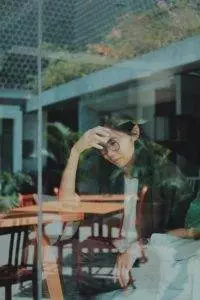
More than ever, people are struggling with feelings of sadness, anxiety, and isolation. Feeling empty or worried all the time, having difficulty concentrating, or even having thoughts of suicide are all possible symptoms of depression. Acupuncture has been shown to be effective for helping manage and overcome both low-grade depression and major depression.
Everyone feels worried, sad, or frustrated due to life situations and problems that come up periodically. But feeling persistently fatigued with heavy emotions for days, weeks, or months on end is a signal that a person might be clinically depressed, or in the throes of a depressive episode.
The current global pandemic is causing most of us to feel exhausted with worry over all kinds of issues: personal health, grief for loved ones who are alone, ill, or have passed, desperation over financial concerns, and feelings of being trapped or deeply pessimistic.
People who already had mental health problems, especially anxiety or depressive disorder, may feel like they have less support than ever, as they cannot see friends or family, and may not have access to meeting with a therapist online. People who have other chronic health conditions, like cancer or chronic pain, may be struggling even more than they normally would, feeling distanced from the care they need.
Everyone is dealing with tremendous stress right now, and we know that stress causes all kinds of health problems. Many people are already used to annual bouts of depression due to Seasonal Affective Disorder (SAD). Young people, most of whom have had to adapt to a wildly different form of learning this year, as well as being cut off from their friends, are even more prone to teen depression. Parents and caregivers are putting in extra hours, and may begin to feel helpless and hopeless in the face of this daily struggle. Truly, everyone is at risk for feeling situational depression in times like these.
Remember that treatment for depression is available, and if you are feeling despondent, it is in your best interest to reach out for help. Integrative care that includes different kinds of therapy may work for people who have not been able to find help for their depressive disorder. We are here at Art of Wellness to provide effective help for depression and chronic anxiety through acupuncture and TCM.
Signs of Depression
Many times people hide or deny their feelings of depression, even from themselves. It is important to recognize the signs and symptoms of depression so that if you or someone close to you if affected, you will be able to get help. Signs that someone is suffering from depression include:
- Changes in weight or appetite
- Changes in sleep habits
- Drug or alcohol abuse
- Difficulty concentrating
- Lack of interest in activities
- Fatigue, feeling tired all the time
- Angry, irritable all the time
- Loss of libido
- Backache, headache, or digestive problems
Signs of depression in teens and depression in women may cause other symptoms, similar to those of anxiety, like racing and intrusive thoughts, extreme sensitivity to criticism, or withdrawal from family and friends. Having trouble sleeping, or sleeping more than usual are potentially signs of depression, as are significant changes in a person’s eating habits, sudden weight loss or weight gain. Depression can also affect cognitive function and memory.
Top 10 Types of Depression

Depression is a mental health condition that is caused by combinations of different factors, and takes many forms in terms of symptoms and behaviors. Mental health professionals differentiate this condition into different types of depression, according to duration, severity, and specific kinds of behavior, emotional, and thought patterns:
-
Major Depression or Clinical Depression – is defined as an episode of sadness or loss of interest or pleasure in external stimuli one usually enjoys that lasts for more than two weeks.
-
Persistent Depressive Disorder or Dysthymia – this is a chronic mental illness characterized by a pessimistic outlook and sad mood that persists for years. In this case, people may have what is sometimes called “high functioning” depression. Even happy occasions do not bring them joy.
-
Manic Depression or Bipolar Disorder – this condition is marked by extreme changes in mood and energy. A person might, at times, feel so low that they have suicidal thoughts or lose touch with reality, then their mood may suddenly shift into high gear, and they seem to have boundless energy and confidence. These shifts may occur over short or long periods of time.
-
Postpartum Depression – colloquially known as the “baby blues,” many women experience a form of depression in the months after having given birth. This type of depression occurs because of sudden changes in hormones, and is often marked not only by fatigue and inexplicable feelings of sadness, but also feelings of anxiety, panic attacks, and disturbing thoughts.
-
Seasonal Affective Disorder (SAD) – this type of depression is relative to the time of year, that is, a person regularly goes through a recurrent period of fatigue and low mood, a sense of heaviness, and irritability, or difficulty getting along with other people. Most people with SAD experience it during the winter months, but it can actually happen at any time of year.
-
Psychotic Depression – this is a form of depression that is accompanied by a break with reality, including delusional or paranoid thoughts, and hallucinations.
-
Premenstrual Dysphoric Disorder (PMDD) – is an extreme form of premenstrual syndrome (PMS) that interferes with daily life during the 7-10 days preceding the period. It is characterized by severe depressed thoughts that can become suicidal in nature. Then, after the period, the symptoms disappear for a few weeks, until the premenstrual phase occurs again.
-
Atypical depression – in contrast to its moniker, this type of depression may be the most common. Atypical depression refers to a predictable pattern of depressive feelings and behaviors, including oversleeping, changes in eating habits, problems with relationships, that overtakes one for a while, then clears up when some kind of positive event occurs. This can turn into a pattern of depression that comes and goes over the years.
-
Situational depression – this type of depression occurs in reaction to some kind of inciting event, maybe one that causes trauma or loss, or simply a major life change like a move or job change. This is a way that some people will adjust to circumstances and stressors in life, and it usually clears up within six months or so after the triggering event.
-
Disruptive Mood Dysregulation Disorder (DMDD) – this is a disorder that occurs in childhood marked by chronic, extreme irritability and a struggle to handle negative emotions. Children with this order may regularly act out or have tantrums when facing frustration.
While some types of depression are considered more severe than others, it is important to keep in mind that all kinds of depression are real health conditions than can and should be addressed before they become even more serious.
Treatment for Depression
In Western medicine, depression is seen mostly as a chemical imbalance affecting hormones and/or neurotransmitters, primarily in the brain. Depression can be triggered by a highly emotional event or difficult circumstances, and then, the chemical imbalance continues to cause negative emotions and disordered thoughts. The conventional medical solution for most forms of depression is a combination of psychotherapy, also known as talk therapy, and prescription medication, in the form of antidepressants or anti-anxiety medications.
Modern psychotherapy aims to help people with depression through the practice of coping skills, problem-solving around relationship issues, and resolving negative emotions.
Different types of antidepressant medication include selective serotonin reuptake inhibitors (SSRIs such as Zoloft, Lexapro, Prozac, Paxil, and Celexa), which affect the way the hormone serotonin is produced and absorbed by the brain cells, and serotonin and norepinephrine reuptake inhibitors (SNRIs like Effexor, Cymbalta, and Pristiq), which influence norepinephrine production, as well. All of these medicines basically work by allowing the brain to have more “good mood” chemicals available. Other, less commonly used medications include second-generation antipsychotics, such as Abilify, which are usually used to treat mental illnesses such as schizophrenia and bipolar disorder, but which are sometimes tried when other medications have not helped.
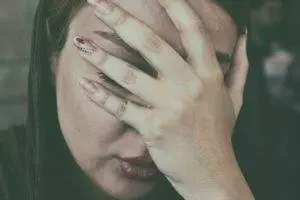
Many people feel that they benefit from the mood stabilisation these medications can provide. Generally, doctors recommend taking the medications for one to two years, to prevent relapses of the depressive symptoms. However, some people find that they have a hard time coming off of certain antidepressant medications, and unfortunately, there are many unpleasant side effects associated with these drugs.
More than half of the people who take antidepressants report side effects such as:
- Headaches
- Dizziness, brain fog
- Weight gain
- Dry mouth
- Restlessness, trouble sleeping, insomnia
- Sexual dysfunction, loss of libido
- Nausea, diarrhea, constipation, or trouble urinating
- Skin rashes or vision problems
In some cases, these side effects may seem manageable in relation to the severe depression they were feeling before, but for others, these problems compound their dissatisfaction with life. More serious side effects, like heart or liver problems can also occur, especially in older people, or because of interactions with other medications used to manage chronic conditions.
Some research studies have shown that acupuncture treatment can be used as an effective alternative to antidepressant medications, or as an adjunct that helps to offset some of the unwanted side effects. This study showed, also, that patients felt an improvement in their mood and quality of life after only a few weeks of acupuncture treatment, whereas the patients taking antidepressants took longer to register the positive effects.
How Acupuncture Treats Depression
TCM takes a holistic view of health that makes it very effective for treating depression. Going back thousands of years, TCM philosophy has always acknowledged the fundamental connection between mental health and physical health. Emotions and thoughts are as integral to wellness as the proper functioning of the organ systems. Imbalances in organs can cause emotional problems, and vice versa. So, when an acupuncture practitioner addresses mental illness such as depression and anxiety, she is looking at the whole picture. While a medical doctor may see varied symptoms such as digestive trouble, headache, irritability, and trouble sleeping as disparate problems to be solved by different specialists, or treated with different medications, a TCM provider views all of these issues as being part of a particular pattern and treats that pattern as a whole.

According to TCM, depression is caused by stagnation, or blockages in the Qi (life force energy). It is usually related to stagnant energy in the liver, spleen, heart or kidneys. Liver Qi stagnation can cause strong feelings of frustration, stomach pain and digestive trouble, heartburn or tightness in the chest, and headaches. Heart or Spleen Deficiency patterns cause worrying, trouble sleeping, and poor appetite. Chronic cases of depression with anxiety are often related to Yin deficiency, which causes irritability, restlessness, poor sleep, and back pain. An acupuncturist looks at all of these symptoms and treats the appropriate pattern with acupuncture and herbs. Acupuncture will also help people by relieving stress, and helping to restore better sleep.
One study looked at patients diagnosed with minor depressive episodes and generalized anxiety. Patients who received ten acupuncture treatments showed significant improvement over those who did not.
A study designed to help show the effect of acupuncture on neural circuity and chemistry as it relates to depression combined acupuncture with antidepressants when treating women with major depressive disorder. The patients receiving both showed improved functional connectivity in the corticostriatal reward circuitry of the brain.
Another study showed that electro-acupuncture treatment has as positive an effect on norepinephrine levels as amitriptyline – a medication commonly prescribed to treat major depression disorder and anxiety disorders.
Can Acupuncture Help Depression During Pregnancy and Postpartum Depression?
Some forms of depression are specific to the area of women’s health. PMDD, pregnancy depression and anxiety, and postpartum depression can all be helped with acupuncture treatment, without the risk of side effects.
It is important, both for their own health and that of the expected baby, that women suffering from depression during pregnancy or in the postpartum period seek help. However, there are risks involved in taking medications during pregnancy. Antidepressant use has been linked to birth outcomes such as low birth weight and premature delivery. Acupuncture, which can provide innumerable benefits during pregnancy, is an option worth exploring to relieve symptoms of depression and anxiety during pregnancy.
Acupuncture Near Me for Depression
Depression can make it difficult to take action. Feelings of hopelessness and isolation can cause people to feel that they are beyond help. Stigma around mental health can cause people to hide their anxiety and extreme moods from others. But depression is a real and treatable illness. Whether you have been struggling with depression for a long time, or have just begun to feel worried about your mental health over the past several months, please do not hesitate to reach out to us at Art of Wellness. We are here to help you get past this depressed period and begin to feel hope and purpose again.
*This article is for education from the perspective of Traditional Chinese Medicine only. The education provided by this article is not approved by FDA to diagnose, prevent, treat and cure human diseases. It should not stop you from consulting with your physician for your medical conditions. Traditional Chinese Medicine is based on Qi, which is an invisible force that usually cannot be observed by modern science. Because science focuses on testing ideas about the natural world with evidence obtained through observation, these aspects of acupuncture can’t be studied by science. Therefore acupuncture and Chinese herbs are often not supported by double-blind, randomized trials, and they are considered alternative medicine therapies in the United States.
How to Treat Arthritis With Acupuncture and TCM
By Qineng Tan, L.Ac., Ph.D. & Xiaomei Cai, L.Ac., Ph.D.

Why am I so stiff when I wake up in the morning? Why do my knees hurt when I stand up? Pain in the hands and fingers, pain in the feet and toes. Lower back pain that comes and goes but seems to be getting steadily worse? Any or all of these aches and pains could signal that you have arthritis. TCM and acupuncture can not only help relieve the pain and inflammation of arthritis, but it can help you regain and maintain your freedom of movement.
Arthritis is a general term for swelling and pain in the joints. Arthritis is very common, affecting over 50 million people of all ages, and is the leading cause of disability in America. Most people with arthritis take pain medications and go on with their lives, living with discomfort and increasingly limited range of motion.
The term “arthritis” refers to a wide variety of disorders that cause pain in the joints. A “joint” is any place in the body where two or more bones meet and allow for movement. Also called “articulations,” joints are formed by fibrous connective tissues that hold the bones together, and pieces of cartilage that provide cushioning and “slip” between the bones. Chronic, long-term arthritis can cause permanent physical changes in the structure of joints, leading to knobby knuckle joints, for example. Some types of arthritis affect other organs in addition to the joints.
Conventional treatment for arthritis mainly focuses on alleviating pain with analgesics or NSAIDS, and reducing inflammation with injectable medications. In some cases, though, these medications aren’t enough to control pain or to bring back people’s former mobility. Many of these medications also come with unwanted side effects.
Acupuncture can not only help with arthritis pain and stiffness, but TCM methods can help keep the joint tissues strong and healthy, reduce inflammation, and prevent further damage due to osteoarthritis. Autoimmune disorders that are unexplained by modern medical science, including rheumatoid arthritis, have been successfully managed by acupuncture and herbs for centuries. Integrative care that uses TCM modalities can help people manage their weight and lifestyle to prevent arthritis from causing limitations or disability.
What Causes Arthritis?
Arthritic pain in the joints can be caused by many different factors. The most common contributor to osteoarthritis is normal wear and tear on the joints over many years that reduces the amount of cartilage between the bones in key areas. Injuries can also cause damage to cartilage. Autoimmune disorders like rheumatoid arthritis or lupus can cause the body’s own immune system to attack the synovium, the tissues that produce synovial fluid, which provides lubrication to the joints. The medical community has not discovered the exact cause of rheumatoid arthritis (nor of most autoimmune disorders), but it is possible they are at least partially genetic in origin. The body’s immune response to certain bacterial and viral infections can also cause swelling in the joints; this is called reactive arthritis. Being overweight also contributes to the development of arthritis, as extra weight puts more strain on the joints.
Top 10 Types of Arthritis
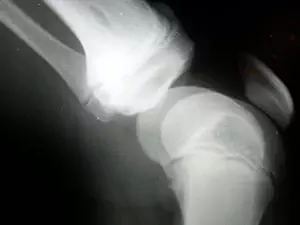
Arthritis is a general term that refers to pain in the joints. There are over 100 different kinds of arthritis. The most common types of arthritis include:
- Osteoarthritis – also called degenerative arthritis, this is when the cartilage between the bones wears away, reducing cushioning and shock absorption to the point that the bones begin to rub against each other.
- Rheumatoid Arthritis – an autoimmune disorder in which antibodies attack the tissue lining around joints, causing inflammation and chemical reactions that, over time, damage all of the surrounding tissues: bones, cartilage, tendons, and ligaments.
- Psoriatic Arthritis – a type of inflammatory arthritis that occurs in about 30% of people who have psoriasis of the skin. Psoriasis causes skin cells to reproduce excessively, creating scaly red and white patches, often on the elbows and knees. In some cases, people will also develop pain, swelling, and stiffness in these joints, or in the fingers or toes.
- Ankylosing Spondylitis – this is an inflammatory disease which often first shows up during young adulthood. It causes the gradual fusing of the vertebrae; a person starts by feeling stiffness and pain in the back, and over time the posture becomes more hunched over as flexibility is reduced. Over time, new bone tissue forms, causing sections of the vertebrae to grow together, usually near the base of the spine, greatly reducing mobility.
- Gout – gout is a form of metabolic arthritis, in which a build-up of excess uric acid forms sharp crystals in the joints of the foot, causing painful swelling, often especially in the big toe.
- Infectious Arthritis – Swelling in the joints can be caused by the invasion of bacteria or a virus. Bacteria that cause food poisoning like salmonella, or STDs like chlamydia, or blood infections like Hepatitis C, can create inflammation that affects joints.
- Reactive Arthritis – previously called “Reiter’s syndrome,” reactive arthritis is an acute form of infectious arthritis caused by bacterial infection, most often affecting the knees and ankles, and accompanied by other symptoms like inflammation in the eyes, and skin rashes. It can be caused by a chlamydia infection or bacterial infection in the digestive tract, and usually only lasts a short time. However, people with immune diseases, like HIV, can develop more chronic forms of reactive arthritis.
- Systemic Lupus Erythematosus (SLE) – Lupus is an autoimmune disease that can cause swelling in the connective tissues of the joints, as well as other symptoms, including: fatigue, rashes on the face, swollen lymph nodes, fever, hair loss, and extreme sensitivity to light and other stimuli.
- Fibromyalgia – a syndrome in which the brain amplifies the perception of pain in the joints and muscles. People with rheumatoid arthritis, lupus, or ankylosing spondylitis may also have fibromyalgia.
- Childhood Arthritis or Juvenile Arthritis – a broad term that simply refers to arthritis when it is experienced by a child. Children usually have either an autoimmune type of arthritis or a reactive arthritis triggered by a bacterial or viral infection.
Top 5 Arthritis Symptoms

Perhaps because a majority of people over the age of 50 feel some symptoms of arthritis, we often think of stiffness and pain in the joints (hip pain, shoulder pain) simply as a normal part of aging. It is true that over time, the wearing down of cartilage and bone tissue is practically inevitable. Still, it is important to pay close attention to potential symptoms of arthritis, and take steps to prevent them from worsening. The top 5 signs of arthritis include:
- Pain in joints – may be a constant, nagging pain, or it may come and go
- Stiffness – especially feeling stiff when you get up in the morning
- Swelling in joints – sometimes with redness in the skin around the joint
- Reduced range of motion – difficulty getting up when you’ve been sitting or lying down
- Fatigue – actually, fatigue may be the first sign that someone has rheumatoid arthritis, but this symptom often goes ignored
Recent research has linked rheumatoid arthritis (RA) with metabolic syndrome. People who have been diagnosed with RA are much more likely to also show signs of metabolic syndrome (MS). MS is clinically indicated when a person presents with three or more of these markers: insulin resistance, high blood pressure, obesity or high waist circumference, high cholesterol and/or triglycerides or raised fasting glucose levels. Osteoarthritis and MS also seem to be linked, especially in cases of osteoarthritis of the knee. It is not clear how precisely these various forms of arthritis may be related to MS, but it is clear that the combination of these health problems puts people at high risk for cardiovascular disease, diabetes, and stroke. The good news is that metabolic syndrome issues and rheumatoid arthritis can be improved with lifestyle management and acupuncture treatment.
Can Acupuncture Help Arthritis?
According to TCM theory, most cases of rheumatoid arthritis fall under the category of Bi Syndromes, which covers various conditions in which Qi (life force energy) and/or Blood are somehow blocked from moving freely through the meridian pathways of the body. Due to Qi and Blood deficiency, cold, dampness, wind, or heat are more likely to invade the system and cause Bi Syndrome to develop.
In TCM we also consider whether a problem stems from internal or external factors. In some cases, arthritis may be caused by an internal problem that was congenital–meaning, a person was born with it. Qi deficiency as an underlying condition might be an internal factor, which then kicks in when some external factor, such as cold from wind invasion, comes in and creates a blockage, and the Qi is too weak to combat it. Some people are simply more likely to be affected by these factors because of their innate condition. Most of the types of arthritis mentioned above are due to internal factors and inflammation. Only reactive arthritis is caused by external factors of infection. Also, if an injury occurs and does not heal properly, that can lead to arthritis in a joint. A few differentiations of Bi Syndrome that might cause arthritis include:
- Cold pattern – cold wind with dampness from an external source causes stiffness that improves with the application of heat, and is accompanied by reduced circulation and pale skin. This is why we advise against sitting or being out in cold, damp weather for long periods of time. This can cause cold stagnation to take hold in the joints.
- Moving Bi – pain is not fixed; it can move to different joints in different areas.
- Sore Bi – pain more dominant, feels better after applying heat, feels worse when it gets cold.
- Fixed Bi – the joint feels heavy, sore and swollen and the pain is in a definite spot, painful to the touch.
- Heat pattern – in this case, the joints are red, swollen, and inflamed, and the face is flushed.
A one-size-fits-all approach to care for people with arthritis simply does not work for everyone. The manifestation of inflammation in people with the cold type differs from that in people with the hot type. An acupuncture practitioner will treat a patient with arthritis based on their individual, specific presentation of symptoms. A systematic review showed how treating patients with RA with different therapies according to their TCM diagnosis produced better outcomes than the standard conventional treatments for RA.
A review of 43 clinical studies showed that TCM for RA not only helps reduce inflammation as a symptom, but improved immune system function. Better regulation of the immune system means that TCM methods help treat arthritis stemming of autoimmune disorders at their source, rather than simply managing pain.
Another review of ten clinical trials analyzed how effective TCM treatment was for people with osteoarthritis of the knee. Eight out of the ten trials concluded that acupuncture was an effective treatment for reducing pain due to osteoarthritis and should be considered as an adjunct or alternative to pharmacological treatments.
Acupuncture treatment combined with Chinese herb supplements and personalized diet coaching can help alleviate symptoms due to different types of arthritis, and may even be able to reverse and prevent further damage to the joints.
Top 5 Tips for Relief of Stiff Joints

While years of use will naturally cause some degradation of joint tissues, there are definitely things you can do to protect your joints and prevent arthritis from slowing you down.
- Weight Management – weighing too much puts extra stress on your joints. One pound of fat translates to four pounds of pressure on the bones and tendons. We don’t recommend trendy weight loss diets; instead, focus on eating lots of fresh vegetables and fruits, lean proteins, and complex carbohydrates from whole grains.
- Vary Your Exercise Routine – different types of physical activity provide different sorts of benefits for your joints. If an arthritis condition is acute, it is best to stick with gentle movements that rotate the joints. Cardiovascular exercise is important to strengthen the heart. Strength training, or toning the muscles (lifting weights) helps build strong bones and muscle mass to support your joints. Pay attention to rotating each joint to prevent stiffness or “frozen” joints on a daily basis: wrists, ankles, shoulders, hips, spine, etc. Tai Qi, Qi Gong, and yoga also challenge your balance; this is especially important as we age, to reduce the risk of falls and other accidents. And you can’t beat a nice, long walk for low impact, weight-bearing, aerobic exercise. Be sure to warm up and cool down with slower, gentle movements at the beginning and end of your workouts so as to avoid any shock to the joints and get your juices (synovial fluid and hyaluronic acid) flowing, literally. Meditation is also very important to maintain mental health. Chronic conditions like arthritis are affected by emotional imbalances that can be helped with meditation practice.
- Drink More Water – staying hydrated is so important for keeping the joints lubricated.
- Eat Healthy Fats – make sure to get adequate intake of good fats, like Omega-3 fatty acids, from fish or fish oil, nuts and seeds, good quality olive oil, and avocados. Overall an anti-inflammatory diet should be observed whenever there is swelling and pain in the joints, which includes avoiding nightshade vegetables, spicy foods, and sugar.
- Wear the Right Shoes and Warm Clothes – choose footwear that fits properly and is supportive. Flip-flops, high heels, and shoes that are too tight can put undue pressure on the joints and don’t provide adequate cushioning and shock absorption. People with Yang Qi deficient conditions should always keep the joints covered with clothing. Exposure can let the cold in.
Acupuncture Near Me for Arthritis
If you or someone you know is feeling the stiffness, swelling, and pain of arthritic joints, don’t wait until it gets worse to do something about it. Regular acupuncture treatment can reduce pain and inflammation. The doctors at Art of Wellness have over 30 years of experience helping patients find arthritis pain relief.
*This article is for education from the perspective of Traditional Chinese Medicine only. The education provided by this article is not approved by FDA to diagnose, prevent, treat and cure human diseases. It should not stop you from consulting with your physician for your medical conditions. Traditional Chinese Medicine is based on Qi, which is an invisible force that usually cannot be observed by modern science. Because science focuses on testing ideas about the natural world with evidence obtained through observation, these aspects of acupuncture can’t be studied by science. Therefore acupuncture and Chinese herbs are often not supported by double-blind, randomized trials, and they are considered alternative medicine therapies in the United States.
How to Treat High Blood Pressure With Acupuncture & TCM
By Qineng Tan, L.Ac., Ph.D. & Xiaomei Cai, L.Ac., Ph.D.
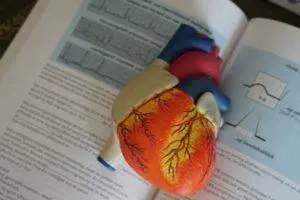
What is high blood pressure? Blood pressure (BP) is the force with which blood, pumped by the heart, pushes against the inner walls of the arteries and veins. When this force is consistently high, it puts a strain on the delicate tissues of the blood vessels and makes your heart work harder. This is also called hypertension. Most people take medications to control high blood pressure. In this article we’ll discuss how to manage high blood pressure with TCM and acupuncture.
High blood pressure is very common in older adults; about half of people over the age of 60 have high blood pressure. It is very important to have your doctor regularly monitor your blood pressure, because high blood pressure, if left untreated, can lead to heart disease, arrhythmia, heart attack, stroke, kidney disease, and many other serious, life-threatening conditions.
Your blood pressure reading is made up of two parts: systolic, which measures the force of blood being pumped away from the heart, and diastolic, the force of blood moving in between heart beats, when blood is flowing back into the heart. A normal blood pressure reading is usually considered 120/80 (systolic over diastolic). A consistent reading of BP over 130 would indicate hypertension stage 1, while a BP over 140 would be classified as hypertension stage 2. A BP over 180 signals a hypertensive crisis, and should be treated as an emergency, as it could lead to a stroke or other serious organ failure.
People with high blood pressure are advised to make lifestyle changes, including following a healthier diet, getting more exercise, and quitting smoking. Even a modest weight loss of ten pounds or so can make a big difference to reduce high blood pressure. Most people end up taking antihypertensive medications to lower blood pressure, often for the rest of their lives. Integrative care for high blood pressure that includes acupuncture treatment and herbal supplements according to TCM principles can provide natural remedies for high blood pressure, restoring the health of the circulatory system so that it might not be necessary to take drugs indefinitely.
Signs of High Blood Pressure
In many cases, there are no clear signs that a person has high blood pressure. Most people do not realize they have high blood pressure until it is measured by a medical professional. While people may think that a flushed, red face, or bouts of dizziness are symptoms of high blood pressure, these sorts of signals are not necessarily directly caused by high blood pressure. A flushed face caused by dilated blood vessels can happen for many reasons, usually because of a temporary rise in blood pressure due to heat, or cold weather, physical activity, spicy foods, hot drinks or alcohol, or a reaction to cosmetic skin products. Dizziness can actually be related to the side effects of medications prescribed for high blood pressure. The only way to know for sure is to check your blood pressure.
Many older people, especially women, with high blood pressure, experience bouts of dizziness that may be part of a hypertensive crisis – a sudden increase in blood pressure that can cause temporary dizziness or vertigo, tinnitus (ringing in the ears), or headache. A hypertensive emergency is sometimes the reason that a person visits a doctor to have a blood pressure check. It may be that hypertension has an effect on the peripheral auditory and vestibular systems, which can affect a person’s sense of equilibrium and orientation in space. High blood pressure can also contribute to problems with memory or cognitive function.
Top 10 Causes of High Blood Pressure
Many factors can lead to high blood pressure. Aging is one factor. If there is a family history of hypertension, you may be genetically predisposed to having high blood pressure, too. Other risk factors also increase the chances of high blood pressure:
- Smoking
- Diet high in salt and/or fat
- Lack of exercise, sedentary lifestyle
- Being overweight
- Stress
- Too much alcohol consumption
- Sleep apnea, snoring
- Thyroid and adrenal problems
- Kidney problems
- Diabetes
Medical diagnosis and treatment for high blood pressure don’t really focus on finding a root cause of the problem. General guidelines for eating less salt and fat, losing weight, and finding ways to reduce stress may help people reduce high blood pressure, but for most people, modest lifestyle modifications aren’t enough to solve the problem.
High Blood Pressure During Pregnancy
Some women develop high blood pressure during pregnancy. Called gestational hypertension, this occurs when a woman has elevated blood pressure during the last 20 weeks of pregnancy. While this type of high blood pressure usually goes away after birth, it can be an indicator of becoming hypertensive later in life. In some cases, having high blood pressure while pregnant can cause problems, such as fetal growth restriction, which may happen if not enough nutrients are being carried to the growing fetus through the blood vessels. If high blood pressure and high levels of protein in the urine are both detected, a woman may have preeclampsia, a serious problem that is believed to be caused by restricted blood flow to the placenta. Women with high blood pressure during pregnancy are more likely to experience preterm birth and to have unplanned delivery Caesarean section.
Conventional treatment for gestational hypertension typically involves monitoring and managing high blood pressure with medications. While not many clinical studies have been done regarding acupuncture treatment for gestational hypertension and preeclampsia, TCM has been used to treat high blood pressure and complications of pregnancy for thousands of years. From the TCM point of view, high blood pressure during pregnancy may be due to a deficiency of Liver and/or Kidney Yin, or rising Liver Yang energy in response to a Kidney Yin Deficiency, or Blood or Yin Deficiency. A TCM provider would use diagnostic methods to determine the differentiation and use acupuncture points to nourish the appropriate organs, promote better flow of Blood and Qi, and to help alleviate stress.
How to Control Blood Pressure with Acupuncture and TCM
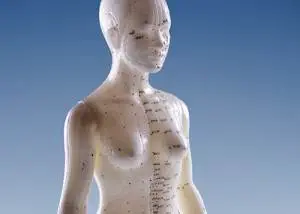
Naturally, for many centuries, TCM practitioners had no way of measuring blood pressure with medical devices. They depended on observations of people’s symptoms, appearance, and careful checking of the pulse by hand. Thus, TCM does take into consideration the patient’s feelings and experience of symptoms of high blood pressure like:
- Dizziness or vertigo
- Palpitations
- Headache
- Fatigue
- Shortness of breath
- Weakness in the knees
- Memory loss
- Vision loss
TCM views dizziness as being a result of too much Liver Yang energy, stagnant Phlegm, Liver-Kidney deficiency, and deficiency or stagnation of Blood and Qi. Hypertension type headaches are caused by the addition of Fire energy coming from the stomach or intestine. Liver Fire can cause irritability and flushing in the face, while Heart Fire can cause chest distress, nervousness, and insomnia. Weakness and fatigue would be caused by the addition of Dampness and accumulated excess fluid. Fluid retention can lead to a distended abdomen, edema, and low back pain.
TCM philosophy also takes into consideration the emotional state as it relates to the physical health of the body. More recent scientific research also confirms that feelings of anger stimulate the sympathetic nervous system and contribute to high blood pressure and heart disease. Finding practices that help how to control anger and find calm are another important part of managing high blood pressure.
A TCM practitioner can treat all of these various symptoms with a combination of acupuncture treatment and herbal supplements individually customized for each patient’s specific circumstance.
One randomized study compared patients receiving acupuncture versus patients receiving sham acupuncture to treat hypertension over a six-week period. The patients who had real treatments showed significantly lower daytime and nighttime blood pressure readings. Another study showed that acupuncture treatment given to patients in conjunction with antihypertensive medications showed significant reduction in both systolic and diastolic BP readings.
As the results of this research study of many clinical trials concluded, regular acupuncture treatments have the effect of reducing blood pressure, with the effects lasting several days after each treatment. Acupuncture treatment generally has a cumulative effect, and it is necessary to stick with it to get results. It is also crucial that you work with your healthcare practitioner to determine which dietary changes and forms of exercise will best help how to reduce high blood pressure.
Acupuncture Near Me for High Blood Pressure
Managing high blood pressure takes commitment to making long-term lifestyle changes and regular monitoring. Adding acupuncture and TCM to your integrative care regimen may help you reduce high blood pressure, improve related problems like fatigue, dizziness, and headache, and avoid more serious health problems down the line.
*This article is for education from the perspective of Traditional Chinese Medicine only. The education provided by this article is not approved by FDA to diagnose, prevent, treat and cure human diseases. It should not stop you from consulting with your physician for your medical conditions. Traditional Chinese Medicine is based on Qi, which is an invisible force that usually cannot be observed by modern science. Because science focuses on testing ideas about the natural world with evidence obtained through observation, these aspects of acupuncture can’t be studied by science. Therefore acupuncture and Chinese herbs are often not supported by double-blind, randomized trials, and they are considered alternative medicine therapies in the United States.
How to Treat Fatigue With Acupuncture and TCM
By Xiaomei Cai, L.Ac., Ph.D. and Qineng Tan, L.Ac., Ph.D.

With so much going on in our lives these days, it is no wonder that many of us feel exhausted and tired all the time. Stress and lack of sleep are so common now that many people are easily tired. But when it gets to the point that a person is always tired, so much that he or she never feels rested and has trouble engaging in normal daily activities, fatigue becomes a serious health concern that requires attention.
Extreme fatigue is a mental and/or physical lack of energy that goes beyond normal tiredness. Physical or muscle fatigue prevents a person from engaging the body in the ways he or she is used to being able to, while being mentally exhausted causes sleepiness and an inability to focus the mind enough to perform one’s usual tasks. Transient or acute fatigue occurs when a person is deprived of sleep over a few days. In general, it is recommended that adults get 7-8 hours of sleep per night. However, a large published report showed that more than a third of Americans regularly sleep less than seven hours per night. Poor sleep habits do more than cause excessive tiredness; they can lead to all kinds of chronic health problems.
Conventional medicine has a limited understanding of fatigue causes, and does not offer much in the way of solutions for fatigue symptoms. Whether fatigue is acute or chronic, acupuncture and TCM offer proven benefits without any negative side effects.
Causes of Chronic Fatigue
Constant fatigue and extreme exhaustion that last for more than three to six months may be signs of Chronic Fatigue Syndrome (CFS) or Myalgic Encephalomyelitis (ME). As a syndrome, CFS/ME is a collection of symptoms that are often seen together, but is not fully understood by the medical community as a disease. CFS symptoms include:
- Extreme exhaustion that is made worse with physical or mental effort (post-exertional malaise, or PEM), i.e., feeling completely spent after any exercise or mental stress
- Sleep is not refreshing
- Foggy head, cognitive impairment
- Joint pain
- Constant sore throat
- Swollen lymph nodes
- Severe headaches
- Extreme sensitivity to lights, noises, smells, foods and chemicals
It can be difficult for doctors to come to a firm diagnosis for different types of fatigue, partly because the symptoms are “invisible” and subjective, but also because there are other health conditions with similar symptoms, in particular fibromyalgia and lupus. The causes of chronic fatigue have not been fully identified, but it is believed that CFS can be triggered by infections, particularly deep candida infection, immune dysfunction, nutritional deficiencies, extreme stress, Epstein Bar virus (EBV, mono), or a combination of these factors. Some studies have indicated that people who experienced childhood trauma may have increased risk of developing CFS, and that psychological stress due to post traumatic stress disorder (PTSD) is linked to CFS.
As of now, conventional medicine has no officially approved treatment protocol for chronic fatigue. Generally, patients are instructed to rest, pace themselves while practicing gentle exercises, and learn to avoid triggers that make their fatigue worse. Doctors may offer medications to help insomnia and antidepressants to help with emotional instability, but these types of drugs can have negative side effects and create dependency. Traditional Chinese Medicine works on a deeper level to address headache, dizziness, fatigue, muscle and joint pain with fatigue, and eye strain symptoms.
Sometimes constant tiredness is attributed to adrenal exhaustion. Adrenal Fatigue Syndrome is not a formally recognized medical diagnosis, but this, too, is a collection of symptoms that is theorized to be related to chronically low levels of the adrenal hormone cortisol. Cortisol is produced in short bursts when we are under stress; this is often called the “fight or flight” response. Going through an extended period of stress might lead to the adrenal glands becoming depleted. People with adrenal fatigue symptoms like tiredness, trouble sleeping, and cravings often rely on caffeine and sugar to help them get that burst of energy. Adrenal fatigue treatment by TCM helps to naturally balance the hormones, while lifestyle modifications implemented over time help resolve feeling so tired all the time.
How Is Fatigue Related to Stress?
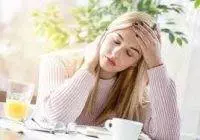
Clearly there are links between stress and fatigue. Stress is the body’s reaction to difficulties and situational changes. When stress builds up over time, the body and mind become exhausted. Chronic stress can lead to emotional exhaustion. Lack of focus and motivation leads to poor decision making, and then a person can no longer take proper care of herself and her loved ones. Mental health issues such as anxiety, depression, and PTSD become intrusive and disruptive to daily life. In today’s world, we are all subjected to many stressors every day. Simply processing a constant onslaught of new information on top of all of the other things we are expected to manage is bound to cause mental fatigue. Feeling overwhelmed is the new normal, but in order to prevent it from becoming a serious health problem, we need to address emotional fatigue.
How Is Fatigue Related to Sleep Problems?
We need nourishing food and restful sleep to function optimally. If an individual does not prioritize healthy eating and getting enough sleep, eventually the body becomes seriously depleted. Feeling tired after eating is a sign that one might be eating the wrong foods, or at the wrong times. Extreme fatigue after eating is also an indicator that when a person does sleep, he or she is not getting good quality sleep. Working on behavioral modifications to improve sleep quality is certainly an important part of addressing fatigue, as is finding a physical activity program that improves energy.
How Is Fatigue Related to Hormones and Women’s Health?
Women often experience fatigue as they go through hormone changes. Feeling lethargic due to PMS, PMS fatigue or period fatigue is common. Fatigue during pregnancy can cause women to feel weak and tired. Women going through menopause commonly feel over tired. These types of hormone related fatigue can be helped by balancing the hormones with acupuncture and herbs.
How Can Acupuncture Help to Fight Fatigue?
The most fundamental concept of Traditional Chinese Medicine is that of “Qi,” the life force energy that flows through the body. According to TCM, fatigue is related to the quantity and quality of Qi a person is able to maintain. Qi deficiency, then, is the primary cause of fatigue. Deficiencies can show up in different ways:
- Spleen-pancreas – This is the organ system that directs digestion. When this is weak, people might feel bloated after eating, tend toward loose bowels, feel weak and depressed, and bruise easily. This can be due to erratic eating patterns, especially too many sweets. Worrying or over-thinking can also be part of the problem. Many people go through stressful periods when they exhibit these behaviors and symptoms.
- Lung – The lungs do the job of extracting Qi from the air we breathe. Sometimes lung Qi is weakened when we do a lot of talking as part of our work without taking enough breaks. Emotions of grief and sadness can also weaken the lungs. This may present as being prone to coughs or colds.
- Blood Deficiency – This often goes together with Qi deficiency. A heart-related blood deficiency can lead to feelings of anxiety and restless sleep. A liver-related blood deficiency can cause eye strain symptoms.
- Yang Deficiency – Lack of heat energy in the body causes weakness with body aches and fatigue. This differentiation can cause menopausal fatigue and low back pain.
An acupuncture practitioner will first perform a thorough consultation and exam to identify the specific symptoms of fatigue and the factors potentially causing them. A course of treatment might include not only acupuncture to stimulate points along the meridians, but also moxibustion, a topical therapy used to cultivate warm energy.
One formal study of patients diagnosed with CFS showed significant improvement in both physical and mental fatigue among participants who received daily acupuncture over the course of ten days.
Another study of chronic fatigue patients who were given acupuncture as a complement to conventional treatment showed greater improvement over patients who did not receive acupuncture.
Acupuncture has been shown to increase serotonin levels, which help improve sleep and mood. This means it can be an effective treatment for fatigue and depression, without the side effects and dependence that are often caused by SSRIs (antidepressants that work on serotonin levels in the brain).
Chinese herbs are used in customized combinations to address imbalances in the organ systems. TCM herbal remedies are an integral part of treatment for chronic fatigue, and should be combined with your acupuncturist’s nutritional recommendations to nourish Qi and reverse fatigue.
Top 10 Tips to Beat Fatigue
While acupuncture treatment and herbal support will go a long way to combat fatigue, it is critical that patients make meaningful lifestyle modifications. New habits will not only improve symptoms of fatigue, but prevent exhaustion in the future.
- Timing is everything – The adrenal hormones will be more balanced if you follow natural circadian rhythms. This means, ideally, rising with the sun and going to bed well before midnight. Exercise early in the day rather than stimulating the body with activity in the evening. Stick with the same sleep routine, even on weekends and holidays.
- Cut caffeine – Drinking coffee or sodas to stay sharp is actually very detrimental to your health. Think of it as borrowing energy; you’ll have to pay it back later, with interest. If you are used to multiple caffeinated drinks per day, start by reducing them gradually. Then, take at least a few weeks off of caffeine entirely.
- Avoid Alcohol – Even though it may feel like a glass of wine helps you relax in the evening, alcohol has a negative impact on the quality of sleep, often causing you to sleep lightly and wake in the night. Again, start by cutting back, and try to abstain entirely until fatigue has improved.
- Drink more water – Dehydration reduces mental alertness and physical stamina. Drinking 8 glasses of water per day ensures that nutrients and oxygen are moving smoothly through the bloodstream and that toxins are being excreted properly. Don’t wait until you’re thirsty; by then, you are already dehydrated. Remind yourself to drink at regular intervals.
- Eat more frequently to maintain blood sugar levels and energy. Smaller meals eaten every 3-4 hours throughout the day

Walnuts are a great source of Omega-3s are better than 2-3 large meals.
- Get enough Omega-3 – Fatty acid supplementation has been shown to reduce symptoms in CFS patients. Good sources of Omega-3 fatty acids include: fish, fish oil, flaxseeds, chia seeds, hemp seeds, and walnuts.
- Short bouts of exercise – Even when the mildest exertion can be exhausting, it’s vital to establish and maintain regular physical activity. A short 15 minute walk outdoors will help get the blood pumping, and exposure to sunlight is crucial for getting Vitamin D to boost immune function.
- Qi Gong – This gentle form of exercise is part of the holistic health care system represented by TCM. The focused breathing and subtle movements of Qi Gong are designed to nurture Qi. Specific exercises will help to bring in more Qi, encourage Yang fire energy, and relieve stress.
- Yoga – Another practice that goes beyond physical exercise, yoga encourages specific breathing and meditation techniques that harness “Prana.” Similar to concept of Qi, Prana is life-giving energy that we can take into the body from the environment through deep breathing.
- Rest – Prioritizing rest means more than getting enough sleep at night. Change your mindset from one of constant “busyness” and productivity. Give yourself time to rest, read, meditate, listen to music, laugh, and just do nothing. If you have to convince yourself, remember, “doctor’s orders–I have to rest!”
Acupuncture Near Me for Dealing With Fatigue
Now more than ever, extreme stress, lack of sleep and activity, and constant triggering events can cause chronic fatigue. Fatigue is feeling more than tired; it can become a real health concern if you are so physically and mentally exhausted that you cannot get up and face your day. Do not hesitate to reach out for help. The doctors at Art of Wellness are TCM experts with over 30 years of experience helping patients heal unresolved traumas, restore balance and replenish their energy. Call today to get started with a treatment plan to banish fatigue.
*This article is for education from the perspective of Traditional Chinese Medicine only. The education provided by this article is not approved by FDA to diagnose, prevent, treat and cure human diseases. It should not stop you from consulting with your physician for your medical conditions. Traditional Chinese Medicine is based on Qi, which is an invisible force that usually cannot be observed by modern science. Because science focuses on testing ideas about the natural world with evidence obtained through observation, these aspects of acupuncture can’t be studied by science. Therefore acupuncture and Chinese herbs are often not supported by double-blind, randomized trials, and they are considered alternative medicine therapies in the United States.
How to Treat Anxiety With TCM and Acupuncture
By Qineng Tan, L.Ac., Ph.D. and Xiaomei Cai, L.Ac., Ph.D.

Everyone experiences feelings of anxiety or apprehension at times. Sometimes people suffer from excessive feelings of dread or panic, even when they are not in immediate danger. In some cases, the complex cascade of emotional and physical sensations encompassed by the term Anxiety is so pervasive that it becomes a chronic mental health condition. TCM and Acupuncture offer a natural, highly effective treatment option to reduce anxiety symptoms.
We are currently living in a particularly harsh reality in which human life is filled with setbacks and potential danger. There is always a chance that something bad might happen to you or someone close to you. In recent weeks, the coronavirus pandemic has understandably created a pervasive sense of worry amongst the population, and the numbers of people filling prescriptions for anxiety-related medications, antidepressants and sleep aids has increased dramatically.
Anxiety is clinically defined as a persistent feeling of worry, accompanied by physical sensations such as heart palpitations, dizziness, and sweating. Sometimes people describe it as being similar to the sensations you feel when you’ve tripped and you’re falling, except that the scary feeling persists for a long time; it doesn’t go away even when nothing is happening. Anxiety disorder is a very common mental health condition experienced by people of all ages; every year about 20% of Americans seek medical help for symptoms related to anxiety.
If you are feeling heightened levels of distress that are affecting your ability to sleep, focus, or care for yourself or others, please be assured that help is available. Acupuncture and other TCM treatment modalities offer a safe alternative to pharmacological drugs that can cause side effects and potentially lead to dependency and withdrawal symptoms. A qualified acupuncturist will conduct an in-depth consultation and create a program designed to specifically address each patient’s individual combination of symptoms and life situation.
What Are the Symptoms of Anxiety?
Doctors classify types of anxiety disorders into several sub-categories, including Generalized Anxiety Disorder (GAD), Social Anxiety, Obsessive-Compulsive Disorder (OCD), Post Traumatic Stress Disorder (PTSD), Phobia-related Disorders, and Separation Anxiety (anxiety in children).
The most common symptoms of various types of Anxiety include:
- Rapid or labored breathing
- Rapid heartbeat or tachycardia
- Feeling “on edge” or irritable
- Sweating
- Difficulty concentrating
- Memory loss
- Difficulty sleeping
- Fatigue
- Stomach upset
- Anxiety headache
Each person will present with a unique combination of symptoms and sensations, along with her own “triggers” or things that seem to cause the symptoms to manifest. Most people who seek medical care for their anxiety symptoms are either prescribed psychiatric tranquilizing medications such as Xanax or Atavan, referred for psychotherapy, or both. Some doctors use antidepressants such as Zoloft, Lexapro or Prozac to treat anxiety. These Selective Serotonin Uptake Inhibitors (SSRIs) may help reduce symptoms in some cases, but all of these types of medications can cause side effects and lead to dependency. TCM and Acupuncture treatments not only address specific symptoms of anxiety, but address the root causes of the disorder.
TCM Deals With All Types of Anxiety Disorders

Anxiety, like depression and other mental health disorders, carries the disadvantage of being “invisible.” Other people, and even many medical professionals, simply can’t see physical evidence of the problem, and can’t empathize with the suffering involved. Well-meaning family members and friends might offer suggestions to “calm down” or reminders to stay positive, all with the implication that nothing is really wrong or that “it’s all in your head.” Being plagued with constant self-doubt further amplifies the problem. Anxiety is a real health issue, and TCM offers effective modalities to address it.
Modern medicine has only recently begun to make the connection between emotional and physical maladies. Traditional Chinese Medicine (TCM), on the other hand, has acknowledged for centuries that the mental, emotional and physical experiences of human beings are all inextricably linked. Sometimes a physical injury or traumatic experience can set the stage for a mental health problem. For example, a car accident that creates even minor injuries to the body might trigger future panic attacks, phobias, or Post Traumatic Stress Disorder (PTSD). Other times, a mental health condition like chronic Generalized Anxiety Disorder (GAD) can affect sleep, eating, and other behaviors to such an extent that a person becomes more susceptible to illness and disease. It would not be surprising to see an increase in cases of Agoraphobia (fear of leaving one’s home) and Obsessive-Compulsive Disorder (OCD, which sometimes causes compulsive hand-washing and cleaning as well as hoarding behaviors) as a result of the current coronavirus pandemic. People who experience multiple panic attacks may be diagnosed with panic disorder.
Anxiety disorders already tend to lead to feelings of isolation. Now that most people are spending far more time alone or sequestered with family members and roommates, already existing feelings of fear may be exacerbated. People who have never had to cope with anything beyond normal, mild anxiety may suddenly find themselves feeling real panic for the first time. Additionally, some might feel guilty or ashamed about reaching out for help for these problems when there are so many other people hurting for more apparent reasons. But there is real help for anxiety, and getting that help during this time of crisis makes sense. There is no need to suffer. Find acupuncture near me to address anxiety symptoms and the root causes before the problem becomes more severe and chronic.
Acupuncture for Controlling Anxiety
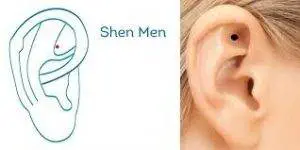
Conventional medicine generally attributes anxiety disorders to abnormal functioning of the brain and nervous system. The feelings associated with anxiety – the emotional sense of worry, the breathlessness and restlessness of the body, the behavioral instincts to freeze or to run – are all exaggerated responses to stress. Stress is the body’s natural reaction to perceived dangers in the environment. When something threatens us, the sympathetic nervous system kicks into gear, and the adrenal glands pump out the hormones that flood the body with energy–what is often referred to as the “fight or flight” response. Normally, once the threat has passed, adrenaline will take some time to move through the body and then dissipate, and a feeling of relaxation is eventually restored. When a person has an anxiety disorder, this hormone release can be triggered by thoughts, and the fear of the physical response itself becomes a part of the vicious cycle.
Acupuncture treatment has been shown to act upon the nervous system, facilitating the release of serotonin, endorphins and noradrenaline, all of which contribute to relaxation and a sense of well-being. Stimulation of specific points have been clinically proven to reduce perceived feelings of anxiety as well as reducing the heart rate and blood pressure of patients. Auricular acupuncture, which specifically uses points on the ear, has been shown to be effective for anxiety. This method is particularly useful, as patients can be fitted with a tiny needle that can be stimulated with gentle pressure as needed to help alleviate symptoms as they appear.
Auricular acupuncture has been used for thousands of years, not only in China, but all over the world. Modern critical analysis has demonstrated that auricular acupuncture affects the parasympathetic nervous system in ways that help alleviate pain and reduce anxiety symptoms. Electro-stim acupuncture, or electro-acupuncture, is another effective modality used by TCM doctors.
How Does Acupuncture Benefit Anxiety Relief of Panic Attacks?
One of the great advantages of acupuncture treatment over conventional methods of talk therapy and pharmacological intervention is that it has an immediately discernible effect. Patients often leave an acupuncture session with a deep sense of calm and relaxation. Reports of improved sleep usually follow quickly. In addition, the long-term effects of regular acupuncture sessions are cumulative, and people report a sustained decrease in episodes of anxiety and panic attacks.
One controlled study compared groups of patients treated with a regimen of acupuncture with moxibustion to a group prescribed a type of benzodiazepine medication. The results showed higher efficacy in reducing anxiety symptoms among the patients receiving acupuncture.
TCM Doctors’ Top 10 Suggestions on Self Care for Anxiety
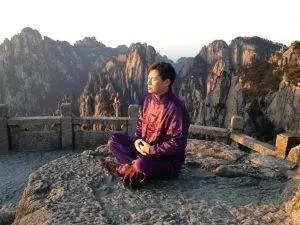
Here are some natural remedies for anxiety you can utilize at home. With consistent practice, these habits will help alleviate stress and reduce anxiety symptoms.
- Meditation for anxiety– Those struggling with anxiety may well be tired of hearing well-meaning friends suggesting they “Relax!” or “just breathe.” But studies have shown that regular meditation practice can significantly reduce anxiety. There are many methods; it is important to find a method that works for you. This study suggested mindfulness meditation may be especially effective.
- Waterfall Meditation – In this exercise, imagine yourself at the base of a waterfall. As you breathe in and out, picture the water gently raining down on you, trickling down each route until the tension inside you releases, relaxing parts of your body one section at a time. Allow your entire body to enter a peaceful and relaxed state. Let the image of the water wash away any stress or anxiety that burdens you.
- Physical Exercise – By now it has been well documented that regular exercise is good for health in every way, lowering the risks of all types of chronic disease. Movement helps reduce anxiety symptoms by reducing adrenal reactivity, increasing the output of endorphins and endogenous (naturally produced in the body) opioids, and even stimulating the growth of new brain cells. It is also suggested that exercise functions as a type of exposure therapy. When people become more used to the sensations of an increased heart rate, heavier breathing, and sweating due to cardiovascular activity, it increases their tolerance for these same symptoms when they appear as part of an episode of anxiety. If you are able to go for a walk or run while following social distancing guidelines, it is especially helpful to get some sun exposure, as well. Put on some music or a favorite workout video; rhythmic movement that engages the large muscle groups provides great benefits.
- Tai Chi and Chi Gong –These ancient traditional forms are “moving meditations” that work upon the endocrine circulatory, and nervous systems to balance energies and strengthen Qi.
- Good Eating Habits – Caffeine, sugar, processed and spicy foods can trigger anxiety. Complex carbohydrates like brown rice, barley, quinoa and oats are relaxing, as are nuts and chickpeas, which contain tryptophan. Now is a good time to become more intimately involved with preparing dishes at home, and this process can also be soothing: a mindfulness exercise that results in a healthy meal! Your TCM provider will provide more detailed instructions for a nutrition program for your specific situation.
- Stress Reduction –Reducing stress goes hand in hand with reducing anxiety. Especially now, carefully manage your daily activities so as not to become overwhelmed. Allot a short period of time for checking the latest news and catching up with friends; then consciously disengage from screens and virtual realities. Social media has already been called into question for its apparent increase of anxiety among teenagers, but it has a real impact on people of all ages. Comparing your situation and surroundings to the carefully curated content you see on sharing platforms can make you feel pressure, shame, a sense of inadequacy. Commit to being grounded in your immediate surroundings and grateful for the blessings that are in your life right now. Recognize that, while it is important to educate yourself about the novel coronavirus, many of the opinions being expressed online are not informed and are designed to provoke an emotional reaction. Avoid reading comments that you know might be triggering.
-

Acupuncture treatments can alleviate sleep anxiety. Sleep Better to Combat Sleep Anxiety – Repetitive, OCD intrusive thoughts and restless energy within the body can make sleeping difficult when you are experiencing sleep anxiety. Cortisol–another stress hormone–levels tend to rise in the evening, and many people register this sensation as anxiety at night. Eating simple carbohydrates like sweets or chips suppresses cortisol and offers a temporary feeling of relaxation. But consuming these foods or alcohol to artificially reduce stress leads to less restful sleep later. Dr. Tan and Dr. Cai can offer many suggestions for how to modify your habits to achieve a better night’s sleep.
- Learn a Language – Distance learning has quickly become an integral part of our lives. Many people are using their time at home to learn new skills. Now is a great time to learn a new language. Studying and practicing will help you focus your mind and instill a sense of accomplishment to help relieve anxiety.
- Structure Your Days – Even though daily life has taken an unusual turn, maintaining a consistent schedule helps keep hormone and energy levels more consistent. Rise and retire at about the same time each day. Eat regular meals. Set aside hours for work and much-needed time for rest and relaxation. Creating a structure for your life helps you feel that you are controlling what you can.
- Cognitive Behavioral Therapy (CBT) 5-4-3-2-1 Grounding Exercise – Use this exercise when feeling anxious or suffering a panic attack. This helps you ground yourself in reality by actively using your five senses. Look for the things, and then name them out loud.
- 5 – Count five things in your immediate environment that you can SEE.
- 4 – Count four things near you that you can TOUCH.
- 3 – Count three things near you that you can HEAR.
- 2 – Count two things you can SMELL.
- 1 – Count one thing you can TASTE.
How to Use 3 Acupressure Points for Anxiety Relief
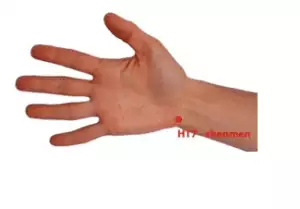
Acupressure is a technique patients can use anytime for symptom relief. Apply gentle, firm pressure to these points.
- Liver 3 is a grounding point that helps redirect rising energy downward. Located between the first and second toes, you will find a very tender spot. Try applying gentle pressure here to alleviate irritability, headaches, TMJ, and anxiety.
- You have probably seen the bands people sometimes wear around their wrists to prevent nausea. These are designed to put pressure on Pericardium 6, which quells queasiness. The point is located between the two tendons on your wrist, two fingers up from the wrist crease. Pressing on it is immediately calming. It helps to open the chest, as well, so if you feel tightness in the chest or shallow breathing, use this point.
- Shen Men, called the “Spiritual gate” point, releases heart fire, excitement, anger, irritation and anxiety.
Look for Acupuncture near me in Los Angeles for Anxiety
At Art of Wellness, one of the top 20 clinics in greater Los Angeles selected by experts, we are concerned that so many people are feeling the weight of these difficult times and having to go it alone. But we are here, committed to helping people whether they are suffering possible symptoms of COVID-19 or intense anxious feelings related to fear of the virus. Please do not hesitate to reach out to us at 310-451-5522 or email us at myartofwellness@gmail.com if you or someone you love is battling anxiety.
*This article is for education from the perspective of Traditional Chinese Medicine only. The education provided by this article is not approved by FDA to diagnose, prevent, treat and cure human diseases. It should not stop you from consulting with your physician for your medical conditions. Traditional Chinese Medicine is based on Qi, which is an invisible force that usually cannot be observed by modern science. Because science focuses on testing ideas about the natural world with evidence obtained through observation, these aspects of acupuncture can’t be studied by science. Therefore acupuncture and Chinese herbs are often not supported by double-blind, randomized trials, and they are considered alternative medicine therapies in the United States.

